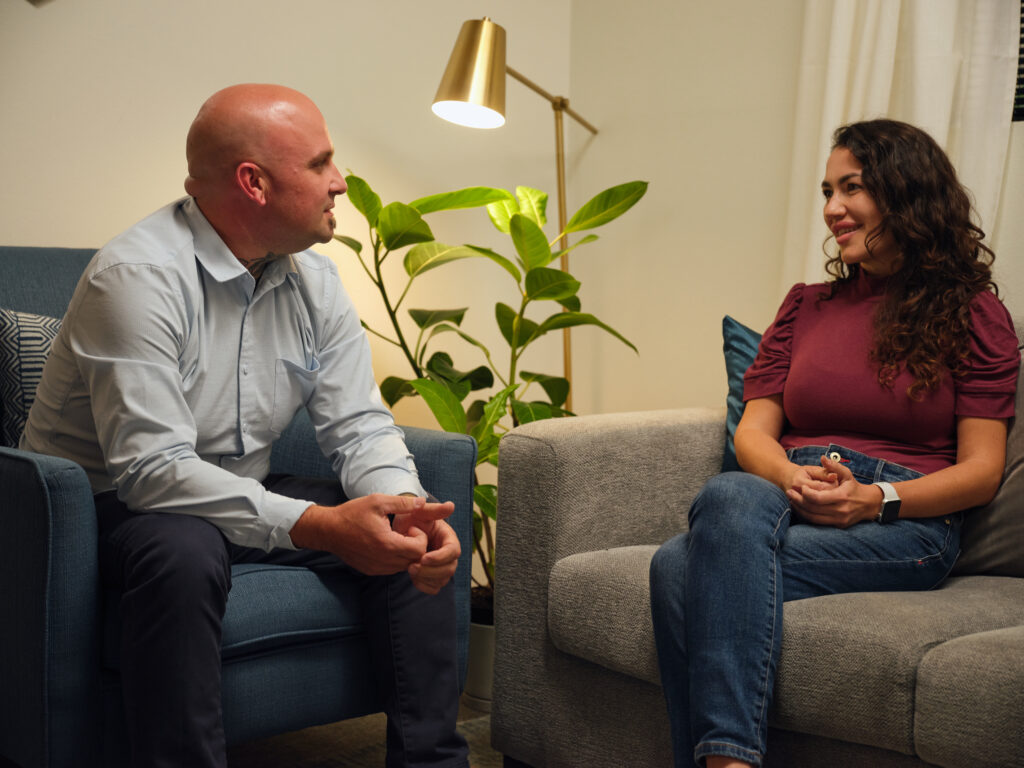
Casa Recovery Offers DBT
Casa Recovery offers DBT to patients as a way to work through negative emotions that are obstacles to a successful recovery.

Dialectical behavior therapy (DBT) is an evidence-based psychotherapy treatment derived from cognitive-behavior therapy (CBT). DBT was originally developed to treat patients with borderline personality disorder, but research shows that DBT is also valuable for those struggling with:
- Depression
- Bipolar disorder
- Eating disorders
- Dual diagnoses
- Substance use disorder (SUD)
- Post-traumatic stress disorder (PTSD)
- Suicidal thoughts and behavior
Individuals with an alcohol or drug use disorder or addiction can benefit from DBT. It is often the case that a person starts using substances because they suffer from emotional trauma. Others may have difficulties responding to emotional stimuli and have intense emotional reactions. They may feel like they are being attacked, which, in their mind, may justify their maladaptive behaviors. They may also get worked up easily and struggle to calm down. Without learning how to cope effectively in childhood, people may turn to substance use later in life. DBT can help treat SUDs as it facilitates the exploration of one’s innermost thoughts and feelings and works toward finding better ways of regulating negative emotions like stress. Stress is a top trigger for relapse, making learning how to effectively deal with stress is critical for a successful, long-lasting recovery.
DBT Stands Out From Other Therapies
In the context of DBT, “dialectical” refers to a method that works to resolve emotions and ideas that are in conflict with one another in order to improve one’s relationship with themselves and others. This unique approach to addiction and mental health treatment focuses on finding a balance between accepting one’s situation and working towards positive change. Some patients have surges of intense emotions, which can lead them to see things as black-and-white. This “either/or” state of mind can result in a self-perpetuating cycle of negativity and relationship problems. With DBT, a therapist will help the patient by working with them to make sense of opposing perspectives and process situations in a more even and holistic way. DBT helps patients learn how to prevent negative thought patterns from taking over and causing them to jump to conclusions that escalate conflict and create fertile ground for self-damaging behaviors.
Individual Therapy Is Component #1 of DBT
DBT has two main components: individual therapy and DBT skills groups. In individual therapy, patients will engage directly with their therapist to discuss their needs and concerns. The therapist will help them stay motivated and work through any difficulties they may experience while applying DBT skills to personal problems in everyday situations. They pay close attention to how the patient reacts emotionally and how those reactions may be interfering with their progress.
Skills Group Is Component #2 of DBT
In a DBT skills group, patients learn key skills to manage their emotions and avoid self-destructive behaviors. A group setting gives patients a chance to interact with others and practice what they’ve learned through various exercises led by the therapist. Patients can share their personal experiences and provide support to peers. Homework is assigned for additional practice between sessions. These sessions can be up to two hours long and meetings are held weekly for several months. Depending on an individual’s needs, they may attend one type of therapy instead of both.
Learning Skills in Four Areas
One of the main goals of DBT is to improve a patient’s quality of life by changing the way they react to negative emotions. This process involves learning skills in these four areas:
- Mindfulness
- Distress tolerance
- Emotional regulation
- Interpersonal effectiveness
Mindfulness is the quality of having an awareness of what’s happening in the present moment. Mindfulness skills can involve learning how to observe one’s experience in a nonjudgmental way, being thoughtful about each action taken, and dealing with things one step at a time. Distress tolerance is all about learning how to be resilient toward stress and discomfort instead of trying to resist or avoid it. Instead, the patient learns how to accept their situation and move forward. They also learn how to survive crises without making the situation worse. Emotion regulation involves strategies that help a patient manage – and modify – emotions that are creating negative thought patterns and maladaptive behaviors. A patient may focus on recognizing, understanding, labeling, and regulating their emotions. Interpersonal effectiveness refers to how well a patient interacts with another person. Patients will learn how to balance their needs with the needs of others, communicate clearly, and establish and respect personal boundaries. Another important skill is being able to examine interactions objectively without letting emotions cloud one’s interpretation of the situation.
Balance Out Your Life With DBT
Dialectical behavior therapy has much to offer those who have difficulty controlling their emotions and behaviors. Painful experiences from the past can leave a deep scar on one’s ability to see situations for what they are. Insecurities about one’s capabilities and relationships with others can cause significant distress that can become debilitating and prevent a person from leading a successful life and sustaining fulfilling relationships. At Casa Recovery, our patients have access to DBT to treat emotion dysregulation. DBT can be effective for a range of mental health disorders, including substance use disorder and addiction.
Casa Recovery is an addiction and mental health treatment center located in San Juan Capistrano, CA. We offer dialectical behavior therapy (DBT) for patients who are struggling with emotional concerns associated with drug and alcohol abuse, emotional trauma, and mental health issues. Please reach out to us at (888) 928-2272 for more information on how you can start your recovery from emotional dysfunction.

